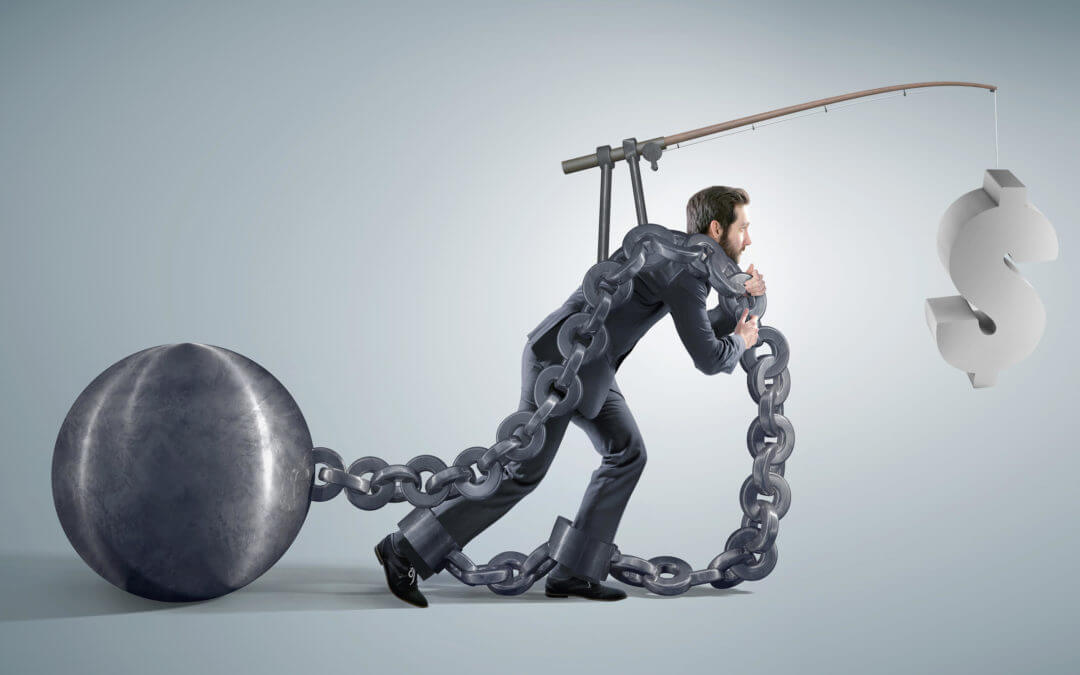One of the questions that we commonly are asked by clients and potential clients is whether they should make payments on their deceased loved one’s debts either before probate is started or while the probate process is ongoing. Some people believe that all of a deceased loved one’s debts should be paid and they feel responsible for making the payments after their loved one passes away. In reality, it is always a good idea to talk to an attorney prior to making payments, especially large ones, so that you can understand whether you are actually liable for the debt, or if it makes sense to make any payments. Most times, the probate estate is the only party liable, and it does not make sense for a loved one to make payments for the debt out of his or her own personal funds.
Who is liable for my loved one’s debts after he or she passed away?
In most cases, your deceased loved one is the only party liable for any debt that your loved one incurred during his or her lifetime. Now it is important to understand that if you cosigned for a loan or credit card, or if you signed some other contract that states you are liable for a debt if your loved one does not pay, you may have liability after your loved one’s death. A third party guarantor is a common provision in nursing home admission packets, so be careful with what documents you sign. However, in most cases, if your loved one was the only person that signed the contract incurring the debt, your loved one is the only party liable for it. If the debt is solely attributed to your loved one, the debt can only be paid by the estate and will not pass through the estate to access an heir or beneficiary’s personal assets.
It is extremely important that you talk to an attorney if you have any questions about your deceased loved one’s debt. In some cases, people have made significant payments on a debt owed by a decedent (the person who died) that they were not required to make! In other instances a person has not made payments on a debt that they themselves were liable for in conjunction with the decedent, placing his or her credit at risk. Determining who is liable for a debt can be complicated, which is why you should always talk to an attorney if you have any questions.
Are there times when it would make sense for me to pay a debt of the estate out of my personal funds?
There may be times when it makes sense for a person to pay a debt for which only his or her loved one’s estate is liable. One of the more common times is when there is a debt secured by an exempt asset of the estate, and the estate does not have any funds to pay for the debt. Another common example is during certain situations in a summary administration.
An example of this situation is the decedent’s homestead property. A decedent’s homestead, when it is devised to an heir, is exempt from the claims of creditors. However, if there is a mortgage on the property, the mortgage company’s security interest for the debt survive’s the exemption. As a result, if the only asset is exempt, but has a mortgage on it, the asset is at risk of foreclosure if payments are not made on the mortgage. This is an instance where an attorney may recommend making payments from your personal funds on the mortgage until you are able to sell the property once it is out of probate
The second example is when there are certain debts in a summary administration, such as a debt that is less than the cost of a certified letter, or when the estate does not possess any liquid assets (cash) to pay the debts. Sometimes a Florida probate judge will not sign the order of summary administration, unless the debts of the estate are paid by the personal funds of the petitioner or another party in order to make sure the debts of the estate get paid. After the payments are made, the assets will be transferred to the beneficiary or heir.
It is important to emphasize again that you need to talk with an attorney if you have any questions about payments of debt in probate. An attorney will be able to examine the types of debt present, and whether you should or should not make payments before or during probate.
Contact us today to schedule a free consultation.
If you have questions about a probate estate or the liability of a decedent for debts of an estate, contact us today to schedule a free consultation. During our consultation, one of our attorneys will review the issues of the probate case and will be able to explain the process to you. We may be able to provide you with answers to your questions about how debts of the estate should be paid (if at all) and give you some piece of mind about the process.

